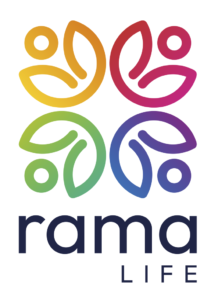This is my school story.
I had friends, but I always felt different to them.
My teachers told me I talked to much, that I needed to try harder and that I was not living up to my potential (whatever that means).
When I was 12, I was taken out of my class and away from friends and put in a disruptive class as a “good influence” becuase I got on with people. It made me feel even more different.
I liked writing stories in English, but found it hard because of my spelling and handwritting.
My ‘Best Work’ was often mistaken for a draft.
I discovered a love of Drama and it became my strongest subject – I was in multiple plays and encouraged to continue to A-Level. But I told myself that I would never get a job as an actress so what was the point. I should do something sensible. Looking back this is crazy – Drama was my first love (and writing was my second).
I wrote an article in my school magazine about Stereotypes and Conformity and how toxic it was – it was aimed at the Principle and the way the school run. He gave me a commendation for it – I was not impressed.
I started a ‘business’ when I was 14, putting on gigs in my local area. It was successful – each time (four in total) I made a small profit and paid the bands. No one suggested I study business or that this could be something I was good at.
If the teacher was good I would excel in the class – Year 10 Chemistry finished with encouragement that I should take an A-Level. My teacher changed in Year 11 and I didn’t even pass the GCSE.
My brain was busy.
The void between who I was and my “potential” became a cavern.
I developed school anxiety and started missing days, when I went it, I didn’t go in until after assembly (because I thought assembly was pointless and didn’t like sitting on the floor with lots of people).
Four months before my GCSE’s my English teacher told me I was dyslexic – not that I hadn’t been trying hard enough, as I had been told my whole life. Or not good enough as I had told myself.
At the same time my best mate who was older than me taught me maths in a weekend. Something years of school teachers had failed to do. I went from struggling in the middle set to studying maths at A Level.
I found my place at college – after starting A-Levels, I left and worked for six months, then returned to do a BTEC in Business. I fell into it for a random reason and it ended up being the best thing ever. For the first time in my education I felt like I fitted in and that I had skills and talent.
It worked because it was a “doing” course and assignments related to actual situations. I could incorporate my storytelling and drama skills – writing financial reports were easy if I pretended I was running an actual business.
It took until I was 41 to realise I had an ADHD brain and to get diagnosed.
During the time inbetween, I had a lot of different jobs and some unfinished degrees behind me.
My father was abusive, I was a young carer and we lived on a very low income. These things were not recognised – because I was chatty and eloquent. When I started missing school, no one checked in on me and if they did, they never made a connection with me, because I remember feeling like as I had “stopped playing the game” they were not interested anymore.
What school taught me: I was broken, I was different, I wasn’t good enough, I was inconsistent, I didn’t try hard enough, I was not realising my potential, that people were unkind, that if the world was like school I would always feel lost. That I was unwanted.
What it didn’t teach me: That I had a gift for entrepreneurism, that I was a natural leader, that my writing and my empathy could change lives for the better and that I had a voice that people would listen to. That I had the ability to turn my hand to anything that caught my interest.
What would have helped: Being respected and allowed to be an individual – not being able to express myself with clothing etc made me want to rebel. I have always had a strong sense of respect and equalitiy. Dyslexia and ADHD diagnosis earlier. It was the 90’s so I will give them that… but I see this happeneing to young people still. I still remember doing a project at primary school about planning to run a tea-shop – that was my favourite thing ever and had that been used to teach me other subjects, I would have excelled. We need new subjects or subjects delivered in a new way for brains with different interests and learning styles. Definately got on better at college with smaller classes, first name basis with adults and relevent subjects (did a business BTEC).

